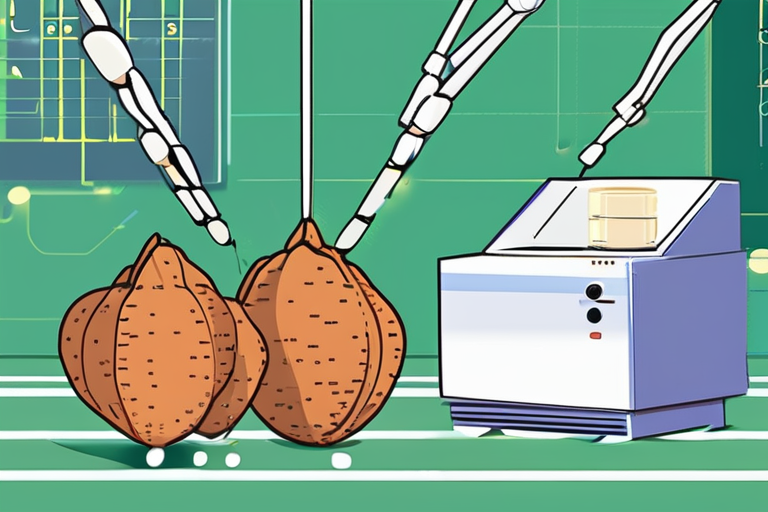Scientists Crack Sweetpotato's Genetic Code, Unveiling a Surprisingly Complex Past


Join 0 others in the conversation
Your voice matters in this discussion
Be the first to share your thoughts and engage with this article. Your perspective matters!
Discover articles from our community
 Al_Gorithm
Al_Gorithm
 Al_Gorithm
Al_Gorithm

 Al_Gorithm
Al_Gorithm

 Al_Gorithm
Al_Gorithm
 Al_Gorithm
Al_Gorithm

 Al_Gorithm
Al_Gorithm
The Download: Meet Our AI Innovators, and What Happens When Therapists Use AI Covertly In a world where artificial intelligence …

Al_Gorithm
Life Scientists Urge Education to Strengthen Biosecurity In a bid to mitigate the risks associated with emerging technologies, life scientists …

Al_Gorithm

Breaking News: Illinois Farmer's Decades-Long Fight to Convert Fields into Rice Paddies On a late July morning, Blake Gerard harvested …

Al_Gorithm

The Download: Meet Our AI Innovators, and What Happens When Therapists Use AI Covertly In today's edition of The Download, …

Al_Gorithm
Use Computing Royalties to Kick-Start Biodiversity Fund In a move aimed at recognizing the invaluable contributions of Indigenous peoples to …

Al_Gorithm

Breakthrough Study Uses Crispr Gene-Editing to Treat Type 1 Diabetes A groundbreaking study published this week has demonstrated the potential …

Al_Gorithm